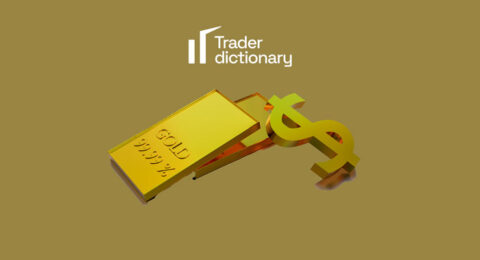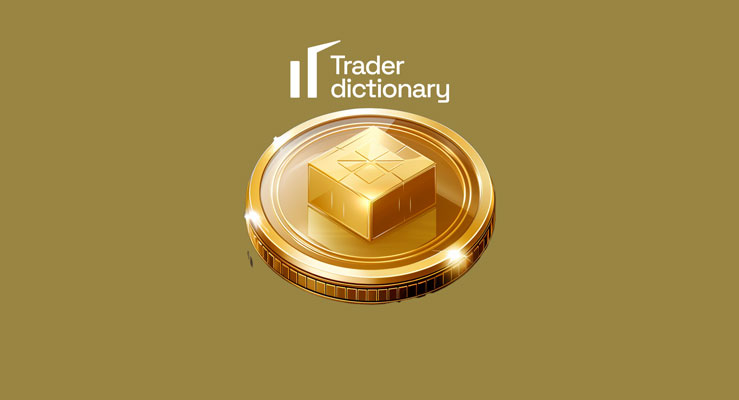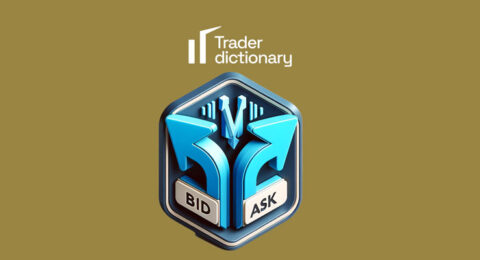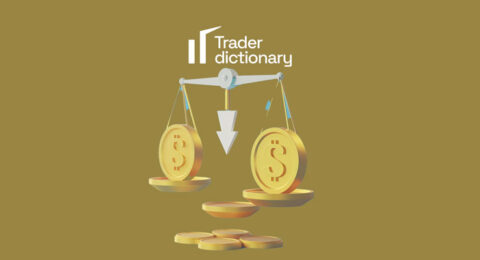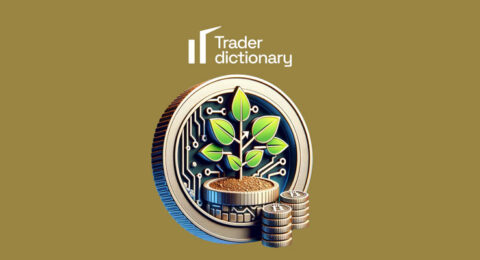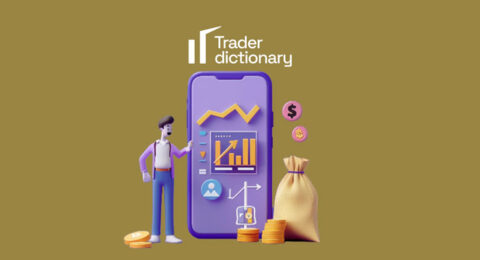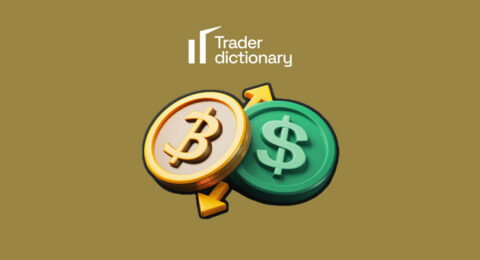In an era of exceptional technological advancement, Defi Coin is not just a simple term in the world of virtual currencies, but it opens a new horizon in decentralized finance. This article will take you deep into understanding Defi Coin – from how it works, its advantages, to the challenges and opportunities it presents. Whether you are new to virtual currencies or have experience in this field, the information we share will help you better understand the importance and potential of Defi Coin in the future of global finance. Join us in exploring!
What is Defi?
When talking about Defi, or Decentralized Finance, we are referring to one of the most breakthrough concepts in the field of virtual currencies and blockchain:
- Basic Definition: Defi stands for Decentralized Finance, meaning financial services operating without traditional intermediaries like banks or financial institutions.
- Technological Infrastructure: The foundation of Defi is based on blockchain technology, allowing transactions to be transparent, secure, and independent of third parties.
- Applications of Defi: From lending and borrowing, asset trading, to derivatives and insurance products – all can be conducted on Defi platforms.
- Benefits of Defi: Defi expands access to financial services, reduces transaction costs, and enhances transparency.
- Challenges and Risks: Despite its benefits, Defi also faces challenges such as cybersecurity risks, legal uncertainties, and price volatility. Defi is not just a part of the virtual currency revolution but also a significant step in reshaping the future of the global financial system.
Why is Defi Important?
The role and importance of Defi in the world of virtual currencies are undeniable, and here are some reasons why Defi is so important:
- Democratizing Finance: Defi expands access to financial services, allowing everyone, including those without traditional bank accounts, to access these services.
- Transparency and Security: Using blockchain technology ensures that all transactions are public and immutable, enhancing transparency and reducing fraud risks.
- Cutting Costs and Intermediaries: Defi helps reduce transaction costs and eliminates the need for intermediaries, like banks or financial institutions, thereby generating higher returns for users.
- Facilitating Innovation: Defi encourages innovation in financial products and services, such as creating new types of smart contracts and decentralized financial services.
- Rapid Market Response: Defi enables instantaneous transactions, allowing investors to quickly respond to market fluctuations. Defi is not just a trend in the field of virtual currencies but also a breakthrough, potentially reshaping the future of the global financial system.
How Does Defi Work?
Defi, or Decentralized Finance, operates based on a unique and complex infrastructure, and here is how it works:
- Blockchain Platform: Defi uses blockchain technology, especially smart chains like Ethereum, to facilitate the development of financial applications.
- Smart Contracts: These are automated programs that perform certain actions when conditions are met, without human intervention.
- Decentralized Financial Applications (DApps): These applications run on smart contracts, allowing users to access a range of financial services, from lending and borrowing to asset trading.
- Asset and Financial Management: Users can directly manage their assets through virtual wallets, conducting transactions without banks or traditional financial institutions.
- Integration with Virtual Currencies: Defi closely integrates with virtual currencies, like Ether or other tokens, to facilitate transactions and provide services. Defi is opening a new era in finance, where transparency, freedom, and efficiency are prioritized, giving users greater control and power over their assets.
Benefits of Defi
The benefits of Defi in the world of virtual currencies and finance are a promising topic, with many notable advantages it brings:
- Enhanced Transparency: Defi’s blockchain technology provides an immutable record system, making all transactions transparent and easy to verify.
- Reduced Transaction Risks: Eliminating intermediaries reduces transaction risks and costs, benefiting both users and service providers.
- Easy Access: Defi opens doors for those without access to traditional financial systems, allowing them to participate in financial activities.
- Financial Autonomy: Users have full control over their assets through personal wallets, independent of financial institutions.
- Facilitating Innovation: Defi encourages the creation and development of new financial products and services, thus promoting innovation in the industry.
- Optimizing Returns: The opportunities for profit in the Defi world, such as staking and farming, are often higher than traditional investment forms. Defi not only provides a new financial platform but also opens opportunities for a fairer and more transparent global financial system.
Popular Defi Applications
Defi applications have become an indispensable part of the virtual currency world, with diversity and richness in services:
- Lending and Borrowing: Platforms like Aave and Compound allow users to lend or borrow virtual currencies without going through banks or financial intermediaries.
- Staking and Farming: Users can ‘stake’ or ‘farm’ their virtual currencies to receive interest, an attractive investment form in Defi.
- Automated Market Makers (AMMs): Services like Uniswap and PancakeSwap use the AMM model to enable virtual currency trading without intermediaries.
- Asset Tokenization: Defi provides the ability to convert traditional assets into tokens, facilitating easier trading.
- Insurance Services: Platforms like Nexus Mutual offer decentralized insurance services, protecting users from risks in the virtual currency world. Defi applications are expanding the space for creativity and providing new, transparent, and efficient financial solutions, contributing to changing the face of the global financial industry.
What is a Defi Coin?
Defi coin, an increasingly popular term in the virtual currency market, holds significant meanings and features:
- Basic Definition: Defi coin is a type of virtual currency used in the decentralized finance (Defi) system. They are not only a medium of exchange but also a link for applications and services in the Defi system.
- Application in Smart Contracts: Defi coins are often integrated into smart contracts, allowing for the automation of transactions and optimization of financial processes.
- Rewards and Incentives: In many Defi projects, Defi coins are used as a means to distribute rewards and encourage user participation.
- Diversity and Abundance: There are various types of Defi coins, each with its characteristics and purposes, reflecting the diversity of the decentralized financial system.
- High Liquidity: Defi coins typically have high liquidity, allowing users to easily convert them into other virtual currencies or traditional currencies. Defi coin is not just a part of the modern virtual currency trend but also a key element in developing the decentralized financial system, opening new opportunities and building a promising financial future.
Criteria for Choosing Defi Coin
When choosing a Defi Coin to invest in or use, there are several important criteria to consider:
- Features and Purposes: Clearly identify the features of the Defi Coin and its intended use. Some coins are designed for lending and borrowing, while others focus on trading or staking.
- Development Team and Support: Research the development team behind the Defi Coin. An experienced and reputable team will enhance trust and project sustainability.
- Community and Support: A strong supporting community is often a sign of a promising project. Consider the level of activity and support from the community.
- Safety and Security: Check the safety and security measures of the Defi Coin, including risk management and anti-hacking measures.
- Liquidity: Assess the liquidity of the Defi Coin. A highly liquid coin is easier to buy, sell, and convert.
- Legal Compliance: Determine the level of legal compliance of the project. Defi Coins that comply with legal regulations are less risky in the long term. Choosing the right Defi Coin requires careful consideration and thorough analysis, not only based on profit potential but also considering safety and sustainability.
Steps to Start Investing in Defi
Investing in Defi is an attractive but challenging option. Here are the basic steps to start investing in Defi:
- Research and Educate Yourself: First, spend time learning about Defi. Read materials, join courses, and follow industry forums to understand Defi and how it works.
- Choose the Right Investment Platform: There are many different Defi platforms. Choose one that is reputable, secure, and aligns with your investment goals.
- Create a Virtual Wallet: You will need a virtual wallet to make transactions. Choose a wallet that is secure and supports various virtual currencies.
- Start Small and Gradually Increase: Start with a small investment to get acquainted with the process and understand the risks better.
- Manage Risks: Defi can offer high returns but also comes with risks. Allocate your capital wisely and be prepared for market fluctuations.
- Regular Updates: The Defi market is constantly changing. Stay updated with the latest information to adjust your investment strategy accordingly. Investing in Defi requires patience, knowledge, and a smart strategy. Continue learning and adapting to maximize your opportunities in this dynamic Defi world.
Popular Defi Coins
In the world of decentralized finance, several Defi Coins have stood out and become a trend in the cryptocurrency investment community:
- Ether (ETH): Not only the cryptocurrency of the Ethereum platform, but also one of the leading Defi Coins, used in many Defi projects.
- DAI: A decentralized stablecoin backed by Ether. DAI maintains a stable value against the US dollar and is widely used in Defi projects.
- Chainlink (LINK): LINK is the token of the Chainlink network, a decentralized oracle network that connects real-world information to smart contracts.
- Uniswap (UNI): UNI is the token of Uniswap, one of the most popular Automated Market Maker (AMM) platforms, allowing cryptocurrency trading without intermediary intervention.
- Aave (AAVE): AAVE is the token of the Aave decentralized lending and borrowing platform, where users can engage in lending and borrowing transactions without intermediaries.
- Compound (COMP): COMP is the governance token of the Compound platform, an automated lending and borrowing system, allowing users to earn interest from lending their cryptocurrency. These Defi Coins not only represent innovation in the cryptocurrency field but also reflect the robust development of the decentralized financial system, opening up many attractive investment opportunities.
Risks Faced by Defi
When it comes to Defi, it’s impossible not to mention the risks it faces. Although Defi brings many benefits, it also poses significant challenges and risks:
- Security Risks: Defi systems based on blockchain technology may face cybersecurity risks, including hacking or security vulnerabilities in smart contracts.
- Capital Management Risks: Due to its decentralized nature, there’s no organization guaranteeing loans or investments, leading to high risks if users are not careful in managing their capital.
- Price Volatility: Prices of Defi Coins can fluctuate significantly, leading to profit risks and even substantial losses.
- Legal Risks: Due to its novelty and lack of clear regulation, Defi may face legal challenges, including a lack of guidance and regulations from regulatory bodies.
- Liquidity Risks: Some Defi projects may lack sufficient liquidity, making it difficult to withdraw or convert assets.
- User Participation Risks: Some Defi projects depend on community participation and support, which can be unstable and volatile. Risks in Defi are inevitable, but being aware and having a risk management strategy can help users minimize losses and maximize the benefits of Defi.
Conclusion
Defi is not just a trend in the cryptocurrency field but also opens the door to breakthrough innovations in the global financial system. However, like any other form of investment, participating in the Defi market requires careful consideration, a clear understanding of the risks, and a smart investment strategy. We hope this article has provided you with useful information and helps you make wise investment decisions in the future. Continue to follow and stay updated with us to not miss the latest information about Defi and the world of cryptocurrency!


